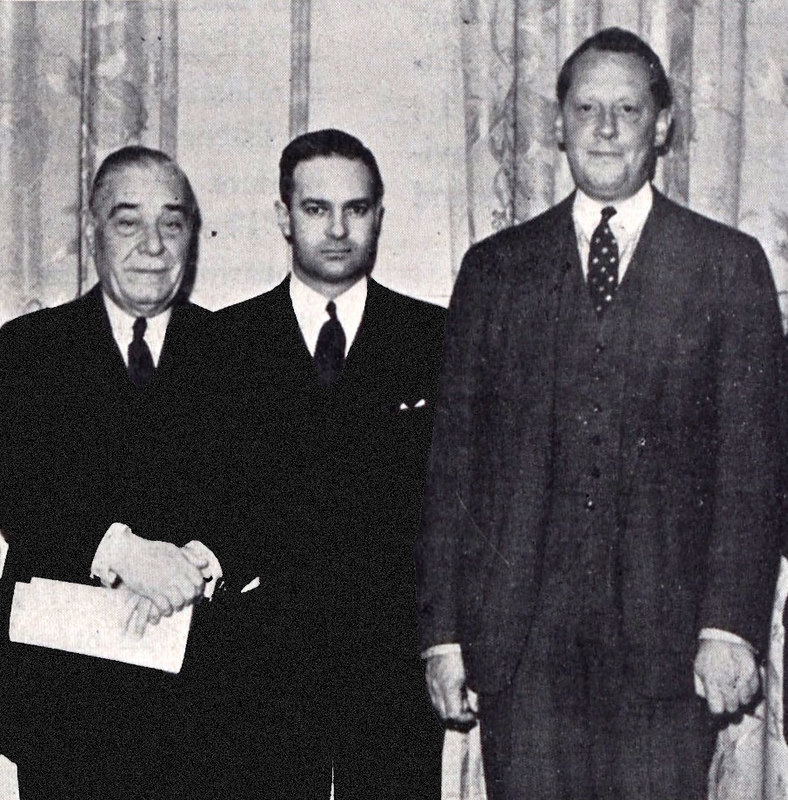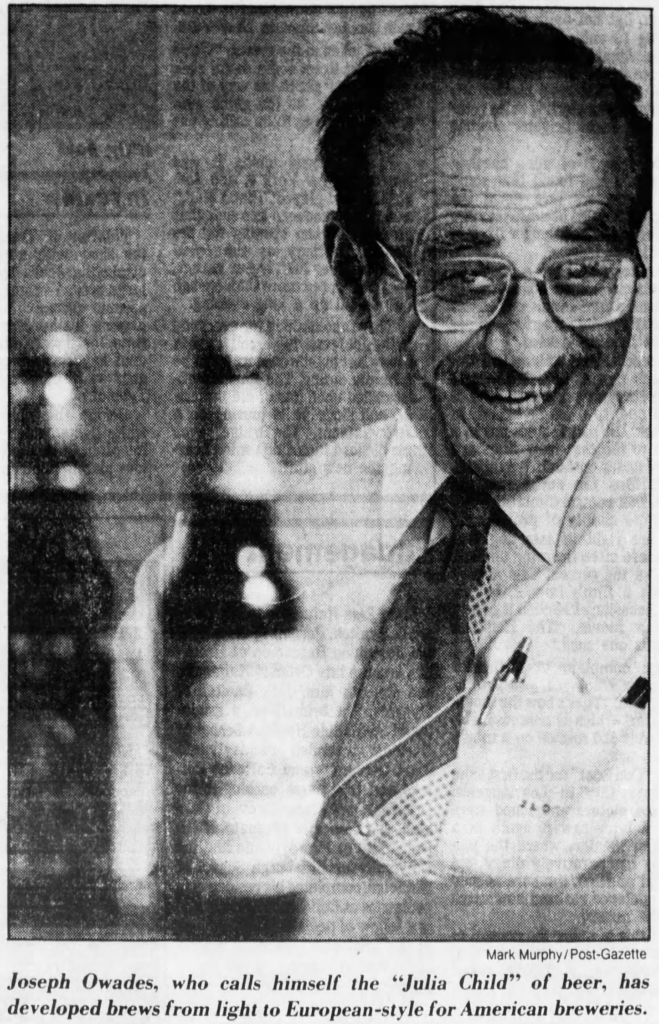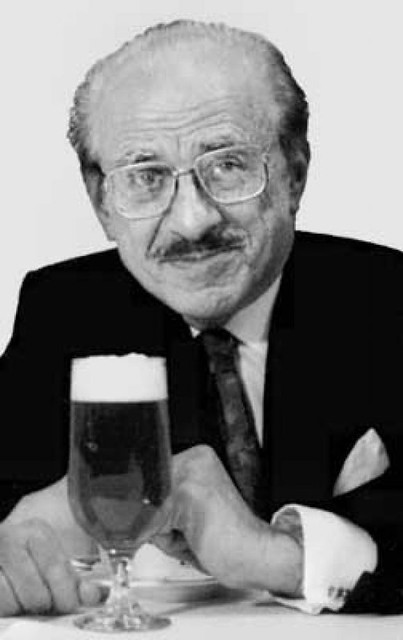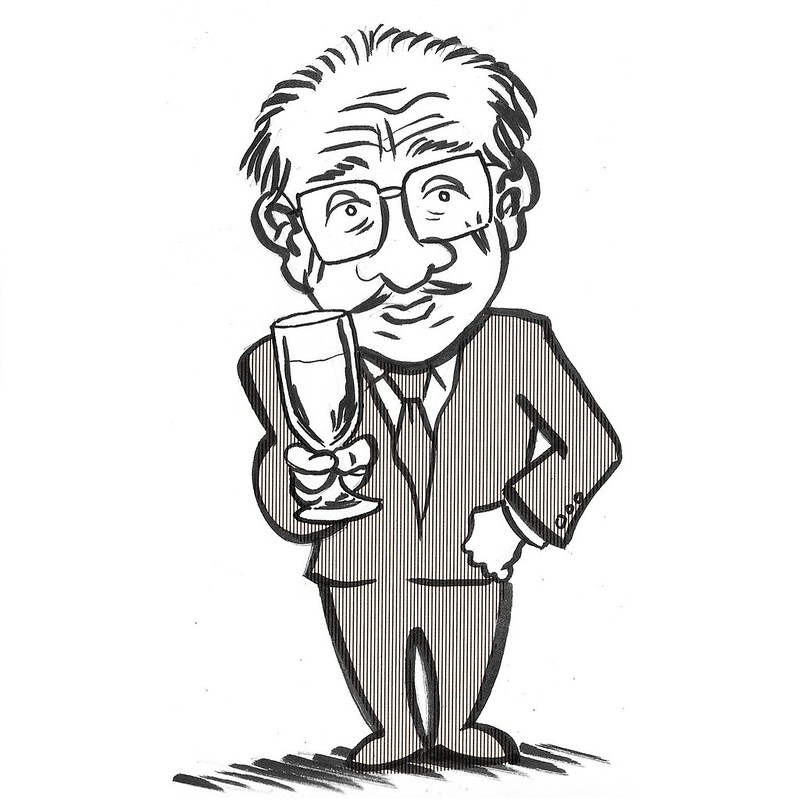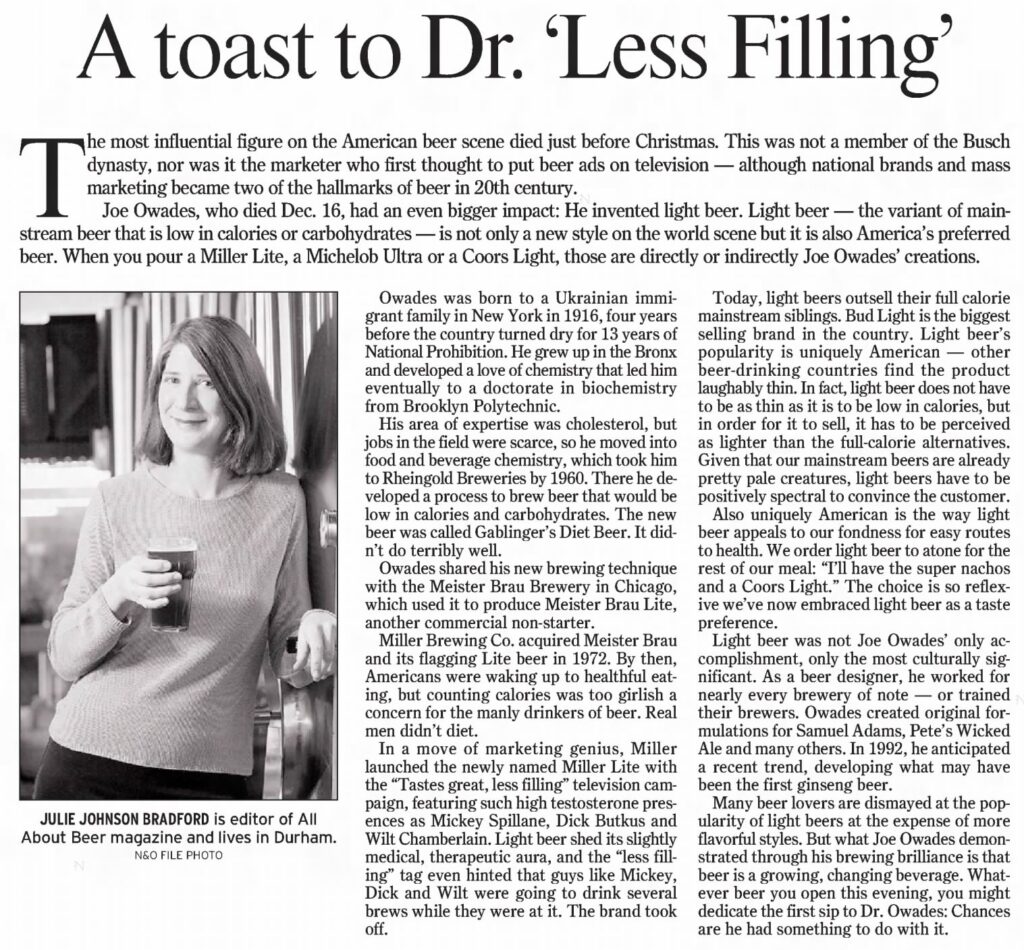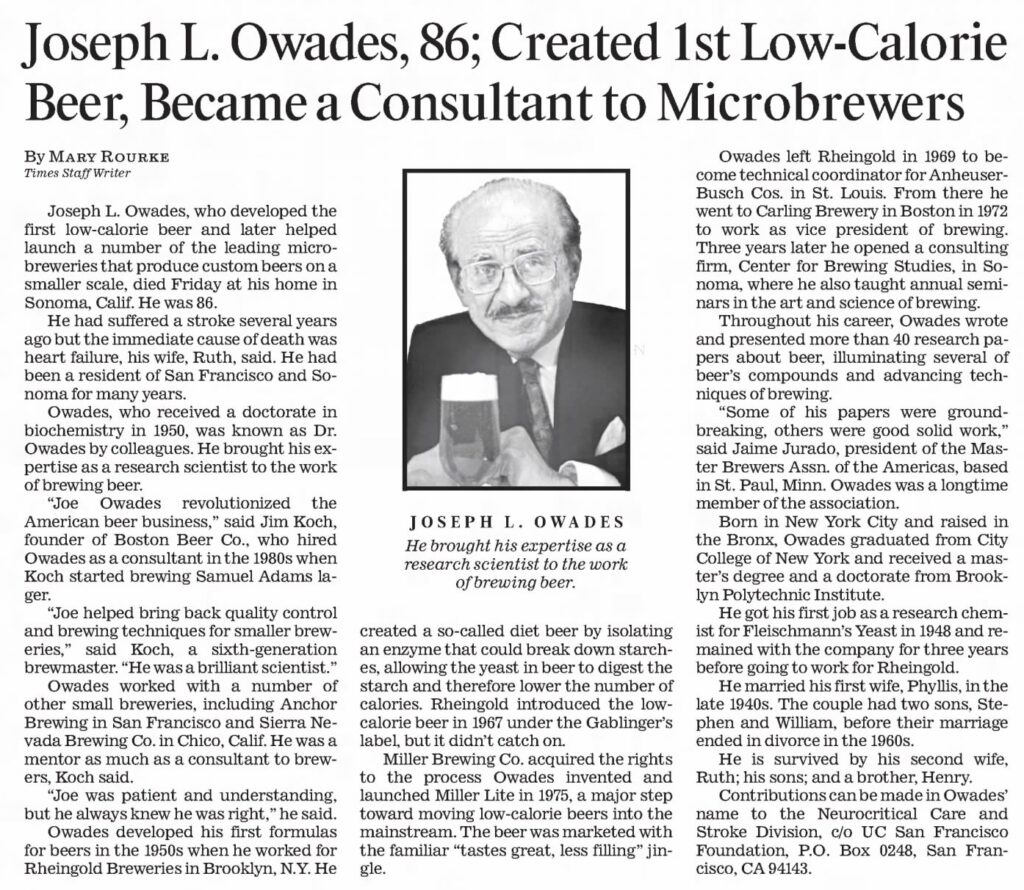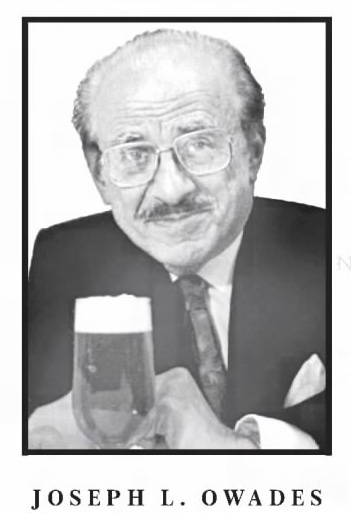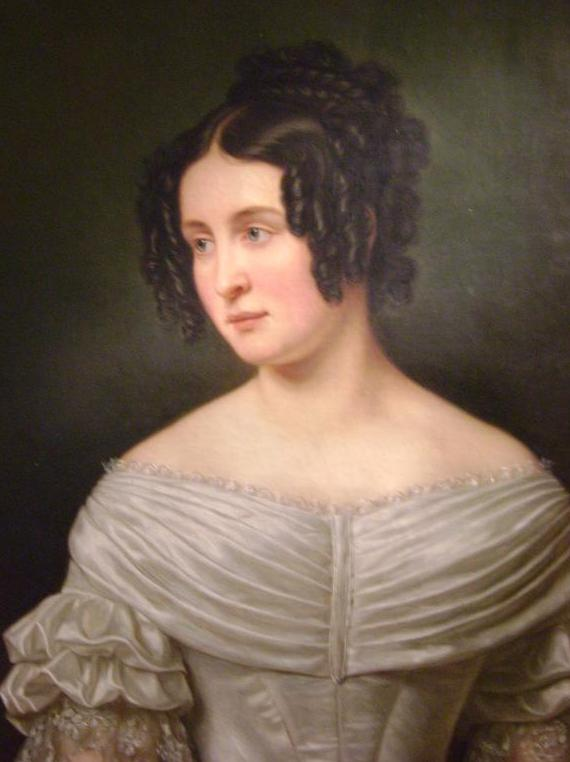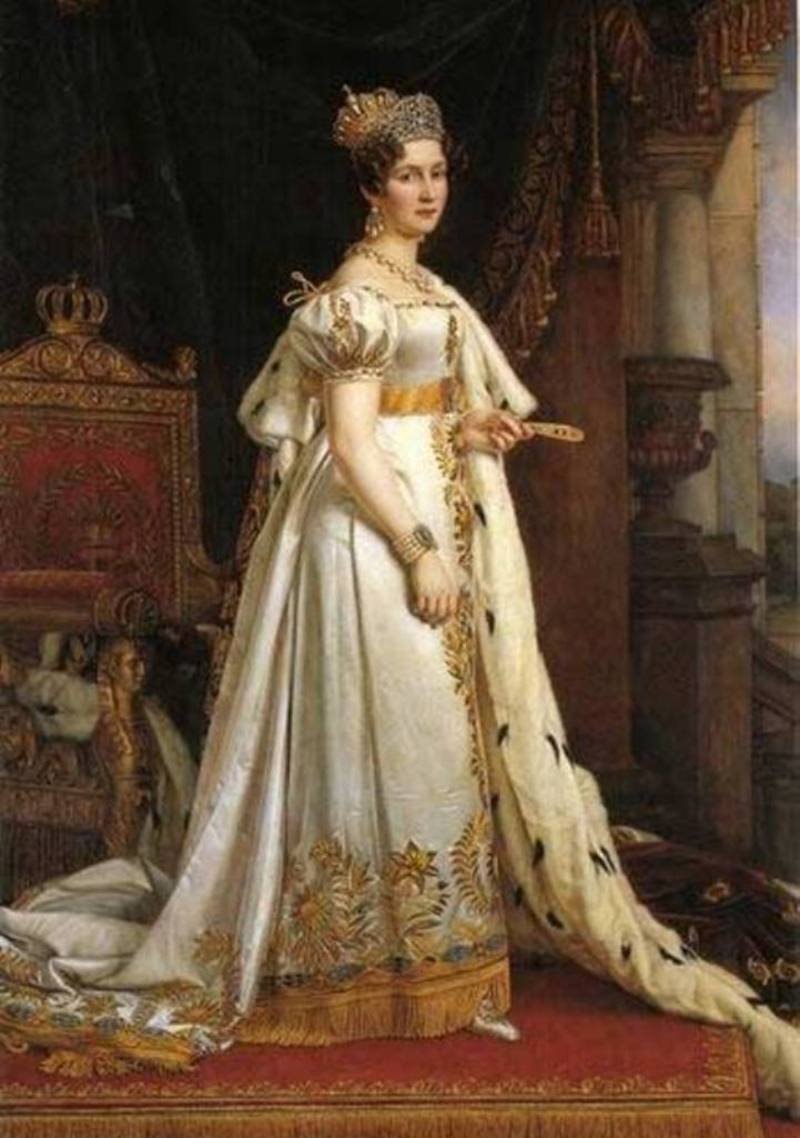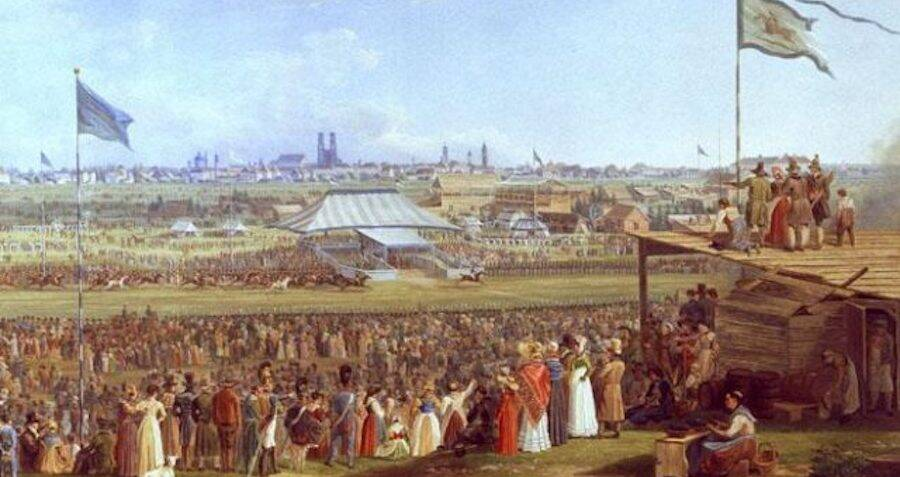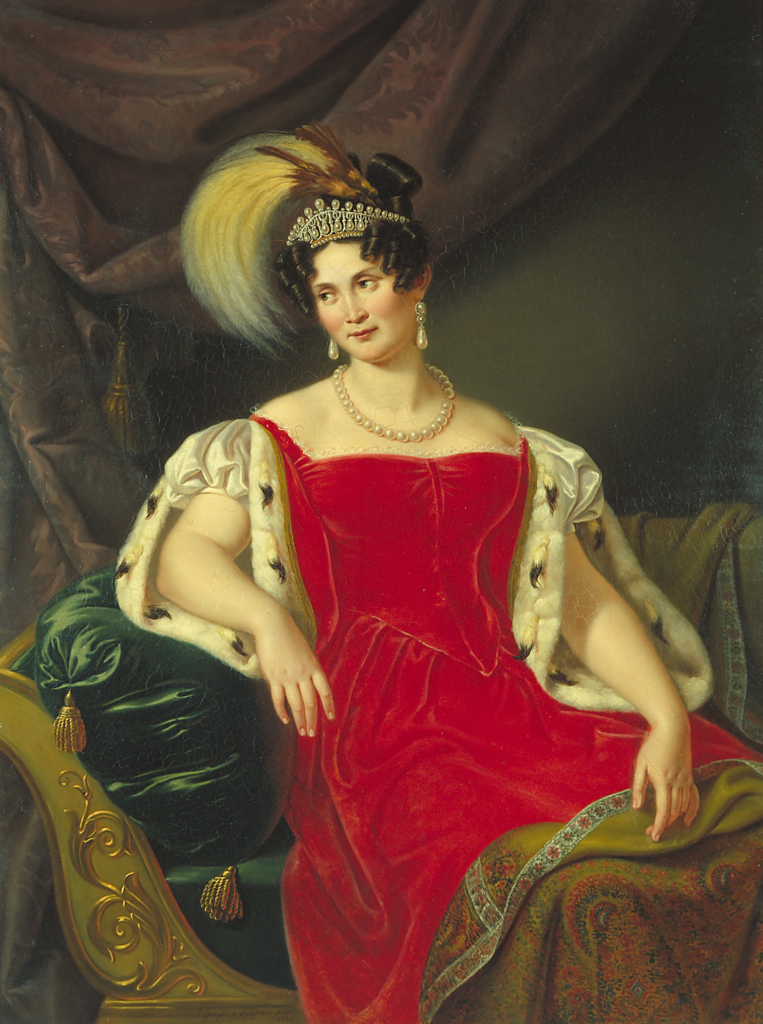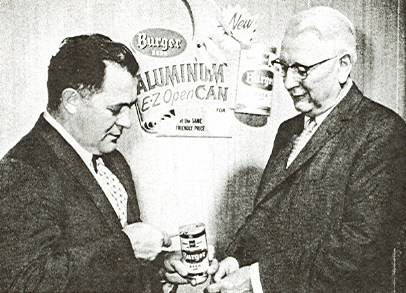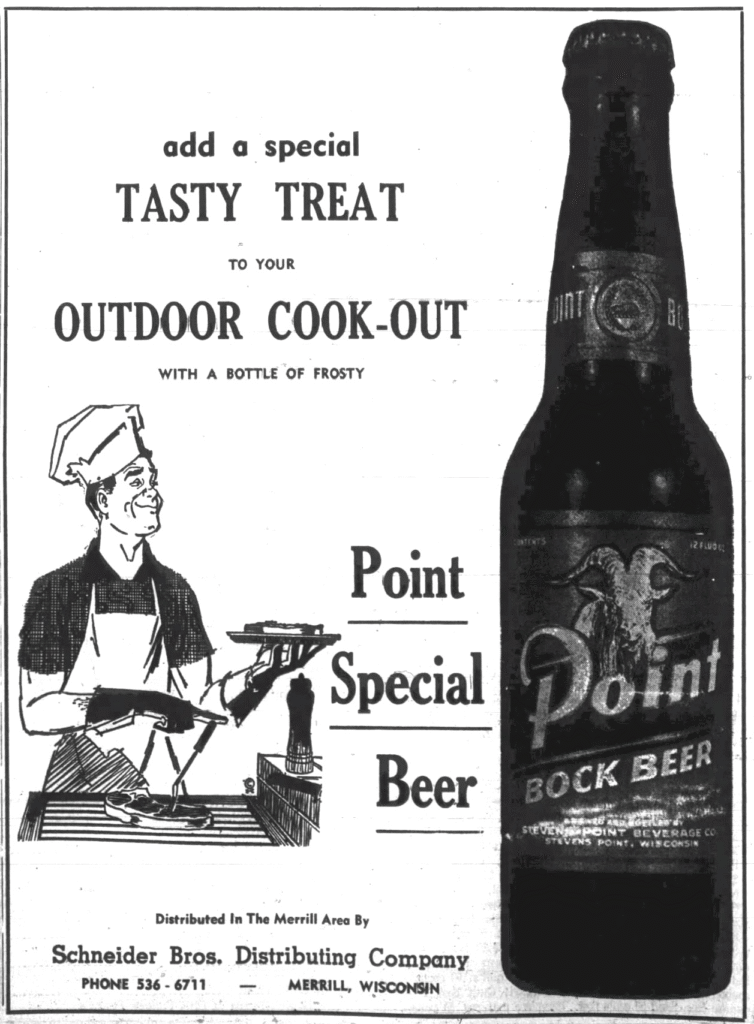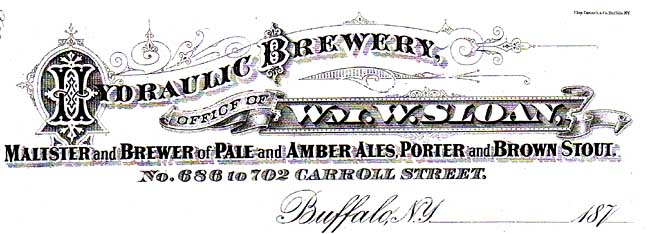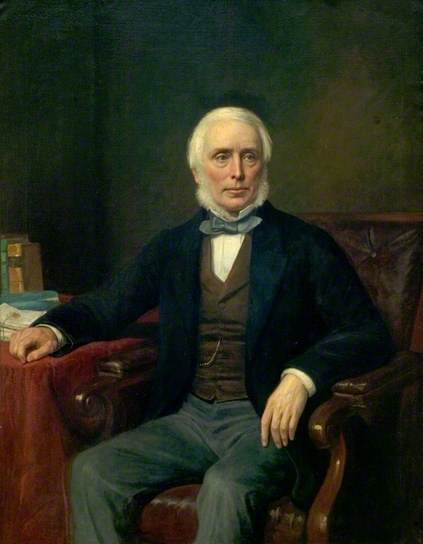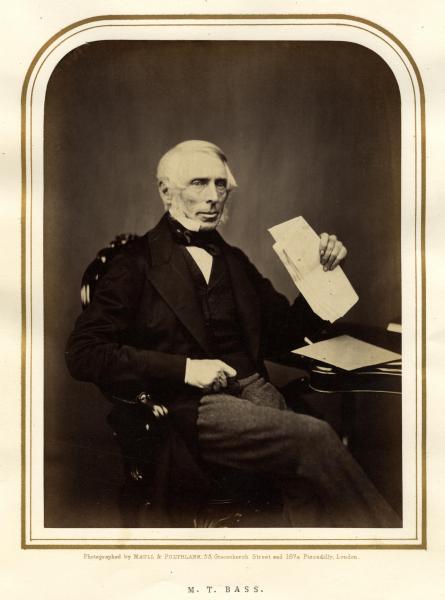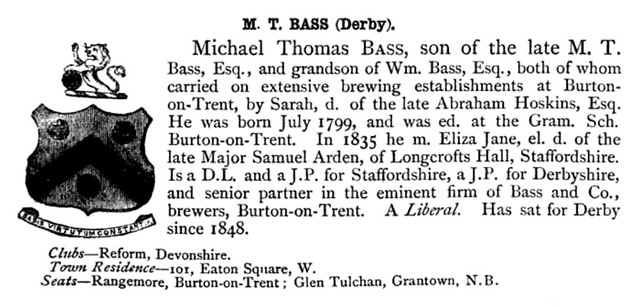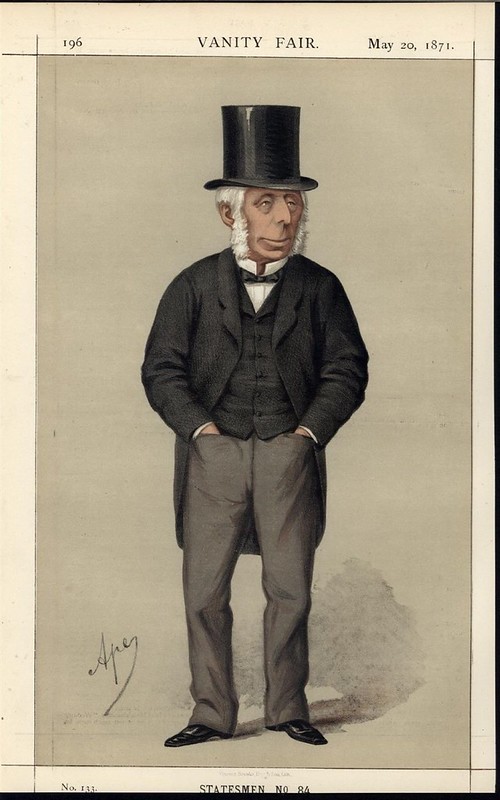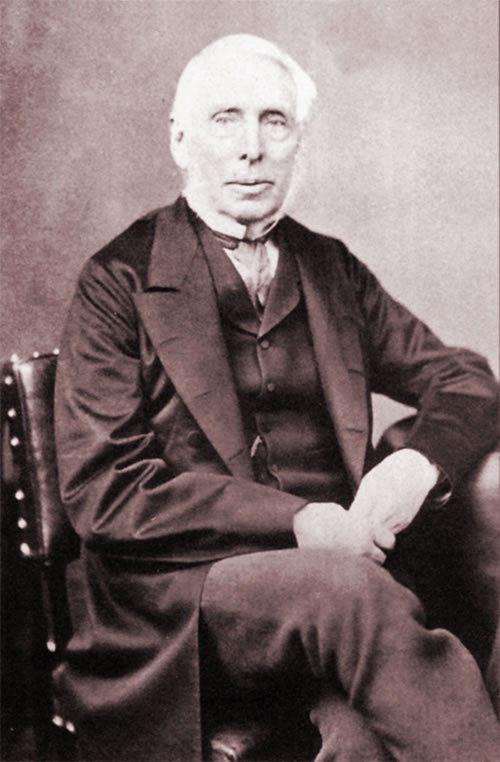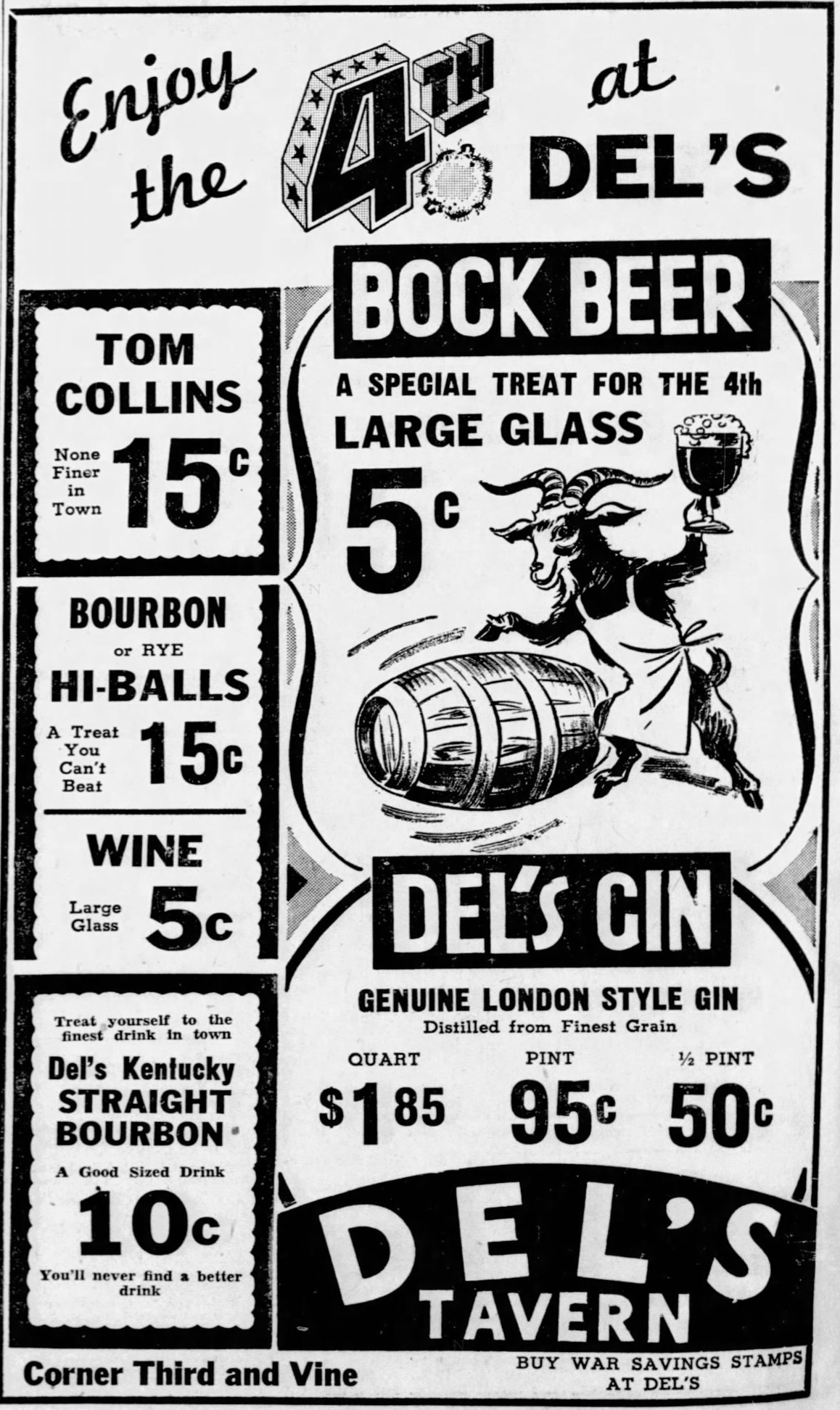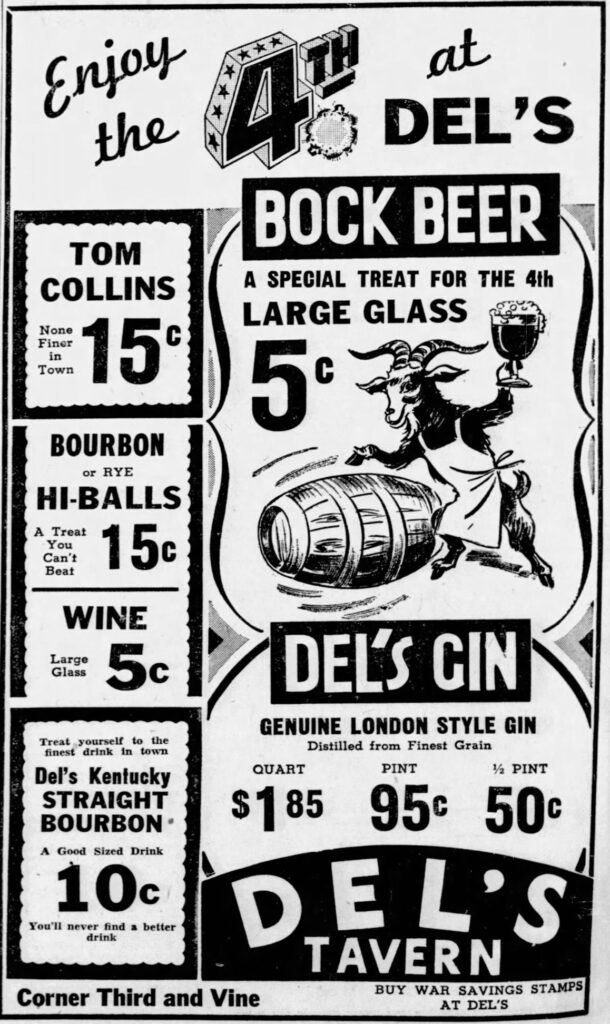
Today is the birthday of Rudolph J. Schaefer Jr. (July 9, 1900-September 2, 1982). Nicknamed “Rudie,” he was the great-grandson of Rudolph J. Schaefer, who was the son of Maximilian Schaefer, and he, along with his brother Frederick, founded the F&M Schaefer Brewing Company in 1842. Rudie’s grandfather Rudolph became the president of F&M Schaefer Brewing in 1912, and continued in that position until his death. He also bought out his uncles and their heirs, and controlled the entire company, which allowed Rudie to become president in 1927, a position he held until retiring in 1969.
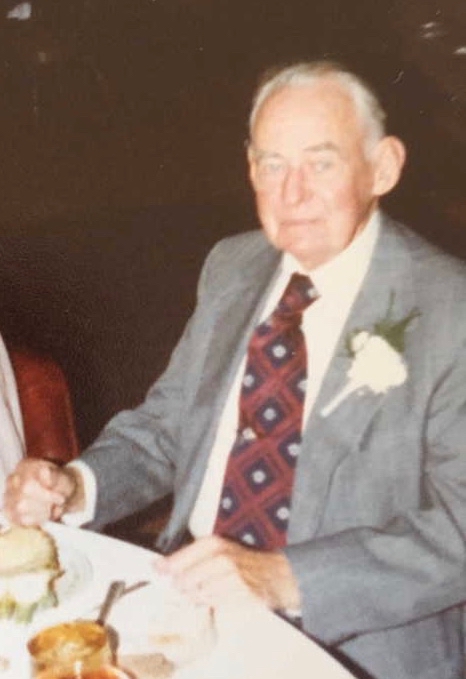
Here’s his obituary from the New York Times:
Rudolph J. Schaefer – the brewer and yachtsman who ran one of the country’s largest and most famous regional breweries for 42 years while also supporting the American tradition of yachthing – died yesterday at Memorial Sloan-Kettering Cancer Center after a brief illness. He was 82 years old.
Mr. Schaefer was well known for his stewardship of the family beer business, the F. & M. Schaefer Brewing Company of Brooklyn, from the depression and prohibition to the hectic competition of the late 1960’s.
A Figure in 2 Worlds
But ”Commodore Ruddy,” as the Larchmont Yacht Club designated him, was at least as important in the world of ships that sail on the winds as he was in the world of palates that lived on good beer.
Mr. Schaefer took over the family brewery in 1927 and began planing for the end of prohibition. In 1934, a year after the country became wet again, his three week old racing yatch, ”Edlu,” won the 650-mile Newport-to-Bermuda race.
During his captaincy, Mr. Schaefer built the New York brewery into the nation’s sixth largest and help support the United States retention of the America’s Cup and the rebuilding of Mystic (Conn.) Seaport.
Rudolph Jay Schaefer 2d was born in Larchmont, N.Y., on July 9, 1900. He was the son of Rudolph J. Schaefer, the head of the brewery which his grandfather, Maximilian, and his grand uncle, Frederick, had founded on Sept. 1, 1842, six years after ariving from Germany. Took Grandfather’s Advice
His earliest lessons in brewing came from his grandfather. He said: ”When I was a youngster, grandfather said to me one day, ‘Rudy, you can have the best grain and the finest hops and the best yeast, but if you want to make real good beer you’ve got to have people who know their business and who want to make the best beer in the world.’ ”
Because he always followed this advice, Mr. Schaefer said in 1952, the brewery had grown. Following his graduation as an architectural major at Princeton University in 1924, Mr. Schaefer joined the brewery which began on 19th Street in Manhattan and then moved to Park Avenue before arriving in Brooklyn in 1915.
Mr. Schaefer became president in 1927. And with Repeal in 1933, he began rebuilding the brewery and expanding the image and consumption of beer.
To this end, he even clashed with Mayor-elect F.H. LaGuardia in 1933 when Mr. Schaefer opposed city-owned beer gardens as good ideas ” for spacious living” that nevertheless jeopardized ”the investment made by many thousands of peoples in retail beer establishments.”
Mr. Schaefer headed the brewery until 1969 when he was succeeded by his son. And the brewery remained independent until August 1981, when it was taken over by the Stroh Brewery Company of Detroit.
Mr. Schaefer is survived by his second wife, the former Janet Udall of Valley Stream, L.I.; his sons, Rudolph J. 3d and William M.; his daughters, Edmee Coombs and Lucy Peterson; and grandchildren.
A big part of Schaefer’s life, as big or bigger than his running the brewery, was yachting, which he was passionate about all his life.
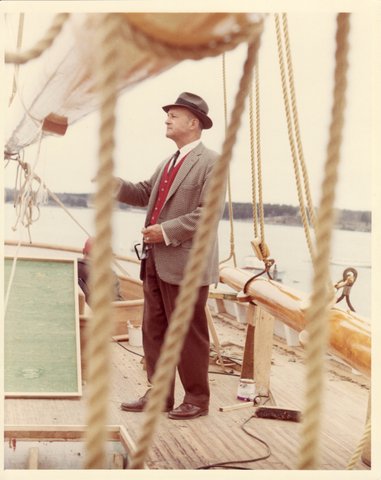
But perhaps the best account was written by Rudolph J. Schaefer, Jr. and is Chapter IV of The Schaefer Story blog:
Section 1
It’s evident from our lifestyle and activities that the repeal of the Volstead Act not only saved the Schaefer Brewing Company from collapse, but resulted, in subsequent years, in its growth and profitability.
But to go back: Eventually, the Sebastion Somers Brewing Company came into Friedrich and Maximilian Schaefer’s hands. How that came about, I don’t know. Perhaps the owner had no issue. My grandfather, Maximilian, came to America with the formula for lager beer. The word, lager, in German means storage place. It was used to define beer which had been aged for weeks or months. Lager beer is distinct from ale, but, generically, ale is called a beer.
My grandfather was the first brewer to make lager beer in this country. This he did after he and Friedrich had taken over the little Somers brewery. Hitherto, all brewers made what we all know as ale–porter, ‘common beer.’ Heavy, bitter and completely lacking in sparkle, ale was drunk at room temperature. One of our prominent advertising slogans was ‘America’s Oldest Lager Beer Brewers.’
In 1842, Friedrich and Maximilian Schaefer formed the F. & M. Schaefer Co., a partnership. We have a ledger entry of their first sale–five gallons of beer. I found the following account written years ago of Friedrich and Maximilian’s partnership in my father’s papers.
‘On a blustery day in February, 1848, Friedrich and Maximilian Schaefer hoisted some casks from their cellar and became the first brewers in New York to put lager beer on the market. Most brewers, who produced English-type beers and ales, didn’t see the handwriting on the barroom floor.’
The fast-growing demand for the Schaefer product seemed to blunt the difficult years since the blossoming partnership took root five years earlier in a small brewery on lower Broadway.
It was barely a month after the Schaefer brothers began operations that New York City celebrated a blessed water event. The new Croton aqueduct now offered a free current of water, through pipes extending downtown, for people, for firefighting and for commercial use.
The joyous news gushed throughout every part of the city with its universal tone. Despite the fact there was “Water, water everywhere,” the Schaefer brothers felt somewhat like throat-parched “Ancient Mariners.”
Their brewery had no connection with the Croton water, and, it turned out, they had to pay a neighborhood grocer $20.75 for a year’s supply.
With the coming of cold weather, malt-liquor patrons shifted to heavier brews. The Schaefer brothers joined in and sold their first strong beer in November. The price was higher than for small beer, a whopping $2.25 for 15 gallons, as against $1.50.
Work in a brewery in those formidable days was hard. It took muscle. Brewers pulled, pumped, lifted and stirred by hand, working as much as 15 and 16 hours a day, and the Schaefers were no different. Brewing also took skill. A brewer lacking instruments depended on his senses of sight, smell, taste and touch to judge the condition of his mixture in following his private formula.
The Schaefer brothers managed these first few years with thrift and determination, despite competition from the other 22 brewereies in Manhattan. Soon they needed to move, and in January, 1845, bought several vacant lots on Seventh Avenue between 16th and 17th Streets where they erected a brewhouse and two brownstones.
As wave upon wave of emmigrants poured in to these shores, lager-type yeast suddently appeared from Europe aboard clipper ships and, obtaining some, the Schaefer brothers revised their manufacturing process. Shortly after, they introduced lager beer. Within a year that innovation, the partners began looking for enlarged quarters.
In 1850, they acquired land on 51st Street and Fourth (Park) Avenue, and part of the old Beekman estate, a fading landmark that ended in a rocky cliff. In a six-year period, they had moved the brewery three times, an indication of the rapid growth of the company. Here, they had a cavern excavated 30 feet wide to make room for a double row of casks and 250 feet deep to accommodate a lot of them.
Producing lager necessitated deep cellars, and cold areas were imperative, not only for the storage phase of manufacturing, but for storage until delivery.
In view of a mounting volume of production, the Schaefer brothers counted on a considerable savings also by making malt in stead of buying it.
Breweries throughout the country increased from 431 in 1849 to 1,269 in 1859, despite the moral fervor of the ‘temperance’ movement, and with formulation of the first Internal Revenue Code in 1862, a device of a Civil War Congress to raise money, taxation of whiskey, as well as beer, helped to promote lager beer’s national success.
Brewers, however, saw the possibility of arbitrariness and evasion in the regulations for tax bites, and subsequently formed a federation to protect their interests and insure uniform obedience to the code.
Frederich Schaefer was named its first treasurer, remaining in that post for 15 consecutive years. The federation was the genesis of the present-day U.S. Brewers Association.
Consolidating activities during the war, the Schaefer brothers closed their Seventh Avenue plant in 1863 and acquired more ground for the Fourth Avenue operation. That July, the plan miraculously was spared from the onslaught of the Draft Riots, which marked a path of pillage and murder for four days, but somehow bypassing the brewery.
With an eye towards growth potential, the brothers later bought property on 50th Street, between Lexington and Third Avenues and erected a large hall, called the Terrace Garden, which became a mecca of entertainment.
Production at the F. & M. Schaefer Brewing Company for 1871-72 was 43,847 barrels, putting the partners eighth on the list of leading American brewers and second to the Lion Brewery in the New York area.
The Schaefer brothers decided to perpetuate the family business and in late 1877 applied for incorporation, listing $650,000 in capital stock. Incorporation became fact on January 4, 1878.
The brewery was built on Park Avenue on the land of what is now St. Bartholmew’s Church. Across the street were their livery stables. The Ambassador Hotel (which later became the Sheraton East) was also erected on that site. A 44-story office building, 345 Park Avenue, replaced the hotel. So the Schaefer brothers had the two block fronts from 50th Street to 52nd Street on the east side of Park Avenue.
The pictures of the brewery show that many years prior to 1910 there were railroad tracks right on grade on Park Avenue. The brewery, facing the railroad tracks, had its grains and materials shipped by railroad and dropped right at its doorstep. In the course of time, the railroad company made a far-reaching decision to depress the tracks, and, in so doing, it was necessary to put temporary bridges every six to ten blocks across the tracks to allow traffic to cross over. About 1911, the tracks were completely recessed, and Park Avenue, with an esplanade down its center, was paved. It had been strictly commercial before then–old factories lining the street. The Steinway Piano factory was north of the brewery.
When the company moved to Park Avenue, the beer was put into large casks probably 6 or 7 feet in diameter and about 7 feet long. Casks were hauled by horse and wagon to a piece of property the company owned on the East River where there were natural caves. I don’t know how my canny grandfather came upon them. The beer casks were stored in the caves for cooling in the ice cut from lakes and ponds and transported to the caves and allowed to age for several months. The beer was light in body with a sparkling quality and clarity and was served cold.
When the property where our caves were was bought to build the fashionable River House apartment building, the builders had a terrible time because when they drilled for the foundation, they fell through into the natural caves which had to be filled in order to support the foundation of the apartment building.
The beer was then filtered into smaller barrels for delivery in the area. The Park Avenue plant consisted of a brewery and an extensive malt house. In 1858, the founders of the company, Friedrich and Maximilian, constructed a large four-story building, installing some of the first refrigerating machinery ever used in this country. This machinery made possible the erection of beer storage houses above ground.
In 1892, on the 50th anniversary of the company, ‘Frank Leslie’s Illustrated Weekly,’ said of Schaefer beer, ‘It has the reputation of fifty years standing for unexcelled quality, strength, age and parity and is the standard beer of the trade.’ In that year, we instituted the bottling department.
I have listed the stockholders of the F. & M. Schaefer Brewing Company as of April 20, 1907.
E.C. Schaefer (275 shares)
Emil Schaefer (5)
R.J. Schaefer (313)
George G. Schaefer (274)
Geo. ChaSchmid (1)
Albert Schaefer (50)
Amelia G. Chatillon (250)
Maximilian Schaefer (308)
Rose K. Schaefer v. Bertenbach (66)
E.C.S. and G.G.S. Trustees for Rose K. v. Burtenbach (134)
E.C.S. and G.G.S., Trustees for Albert Schaefer (200)
R.J.S., Trustee under deed of Trust (624)For a total of 2,500 shares
In September of 1912, my father, Rudolph (now Anglicized) Jay Schaefer, Sr. had the money to purchase his brother Frederick’s children’s interests and his cousin’s interests in the company. It was an amicable buyout and a profitable one for those family members. He thereby became president of the company and sole owner of the F. & M. Schaefer Brewing Company.
On the 70th anniversary dinner of the company, November 23, 1912 my father gave the following speech to the officers and friends of the company. It reveals the feeling he had for the men who worked for the company and the company itself.
“This is the proudest day of my career. It is also one of the happiest nights of my life–and many of my friends have claimed that I have been partial to nights.
Like many of you, so have I built castles in the air and so did I have dreams that I felt could never be realized, and like many, I, in my imagination, tried to reach goals which I felt could never be reached. But, determination, perseverance, plugging away, hard work and some luck are often rewarded by the fulfillment of the very things I referred to a moment ago.
I am here tonight, and this is why I expect to be here a few years longer. I fully realize the difficulty of the task before us–the many responsibilities, anxieties, cares and obstacles to overcome, but I have faith in God, I have confidence in you and in myself.
That is why in taking this optimistic view of the future and having this tremendous desire to ‘make good,’ I feel that we shall and must succeed. And this evening, too, I find a difficult task before me.
I am to give a history of the Seventy years of activity of our concern in seven minutes…
Both old gentlemen [Frederick and Maximilian] and their family came from Wetzlar. Uncle arrived in 1838. My father came soon afterward. They both were earnest, hardworking, saving men, and the first monies they accumulated were returned to their mother in Wetzlar who had given them the money to travel abroad from a mortgage she had placed on her modest little home. The next monies accumulated by them, after organizing the business, brought over their sisters and brothers, of which only one is living today. Aunt Sattig.
When Uncle and Father established the business, succeeding a man named Sommers in 1842, the capital consisted of a few hundred dollars which belonged to my uncle and some chattels which belonged to my father that were not quite worth the amount of money my uncle had. To put them on an equal basis, my father drew a few dollars less each month until such time when they were equal partners.
Uncle moved into his house [on Park Avenue] and here his three youngest children were born. The property which we hold here was gradually bought–some as late as 25 years ago. Opposite here, before the stable was built, was a row of small houses on Park Avenue. The old malt house, over which we had a falling out, when not malting was used for a walking and running track when I was a kid. Later on, John B. and I would use it for a bathing establishment in the summer time. Steel tubs! Around the corner was a place familiar to all the old Columbia College boys–a frame house, ‘Fritz’s.’ Uncle Settig’s place, and next to it was the cooper shop. Our cellars, ‘Felsen Keller,’ were at East River and more beer ran down the gutters in those old days than many places sell. Those were the good old times, and they were happy days.
Each evening at five, we would gather around the old Sternwirth, and there spend an hour or more, telling stories and drinking beer. Uncle Jake Schaefer, Spitzer and later on Moller, were the wits of our party.
And gradually, structural changes took place. The old ice houses were changed into cold storage houses–boilers were opposite – 3 Boyle 25-ton machines, and you could hear valves 1,000 feet away. But many things are as they were more than 30 years ago. Brew house kettles – mash tub – old engine – all the beer – old vats and tanks.
Some of the old men are with us–and if time has changed them a bit, they are just as energetic and loyal as in the old days. No brewing concern in this country and few in any other, can show such a roster of old, faithful and loyal men as we can–and to these men I want to give thanks.
Our brewery is not one of the largest, but in addition to being the oldest is among the best. Its age and standing more than compensate for lack of largeness and furnish the best and safest foundation upon which to build largely and expansively in the future. If the capacity of our present plant is not sufficient to meet the demands of a clamoring public and the efforts of a well organized, enthusiastic, aggressive and energetic force of popular solicitors and agents, for whom it should be comparatively easy to sell a brew concocted by the foremost master of fermentology and exponent of the art of beeriology, why, there are some vacant lots near by that can be improved by placing upon them in time the most complete, modern and up-to-date brewery in this country.
Thirty years ago last Wednesday, I entered the employ of this concern, beginning in the old malt house on Park Avenue. At the end of 30 years’ experience and schooling, it has been my happy lot to come to the head of the business in which I started at the bottom, and as I approach the responsibilities which come with the assumption of control, I find consolation both in the knowledge that I shall have about my men, you men, who will assist me in solving the problems and carrying out the work which we shall confront, and also in time have at my elbow one of my sons who will share with me the labors and responsibilities of my position. When one looks upon the founding, development and growth of a business such as ours, he is forcibly reminded of what Tennyson wrote about the brook: ‘For men may come and men may go, but I go on forever.’
So is the Schaefer Brewing Company destined to go on from generation to generation. Founded 70 years ago by the two noble men to whom I referred, perpetuated and carried further by their sons, it now happens that a third generation of the family is to enter into active participation in the affairs of our company and acquire the lessons and experience which will enable it some day to carry its burdens and enjoy its prosperity.
It is my pleasure and my blessing that I am to introduce into the business tonight my son, Emile. With him I hope will come new life, new vigor, new ideas and new force. I hope it may be given to him to carry on this business until the next generation and to continue these yearly celebrations of our birthday up to a time when a fourth generation will take hold of the reins and carry the business on to another generation.
Tonight is indeed commemorative of many things. It deals with the past. It puts us in deep thought about the present and it brings up the horizon of the future. The past is safely a matter of history. The present is happily taking care of itself. Let us turn our faces to the future and determine upon harmony of thought, unity of action, singleness of purpose and sameness of ambition and make them all tell for the promotion of the best interest and success of The F. & M. Schaefer Brewing Company–not for me, not for anyone alone, but for all of us because we are all sailing in the same boat and sharing the same trials and enjoying the same successes.
A friendly haven will welcome us all together; a destructive storm will bring calamity to each of us. I am at the wheel for time being and shall endeavor to steer a safe and successful course. All I ask of you is your conscientious assistance. With that I have no fear for the future.”
Section 2
The entire Park Avenue area, to use a current term, was slowly gentrified. Apartment houses were built on the east and west sides of the avenue. By 1916, the area was almost 100% residential, and the commercial plants such as the brewery had to move. Having bought out his cousins, my father made the unilateral decision to move the F. & M. Schaefer Brewing Company to Brooklyn. He sold the property–one block front to the church and one block front to what became the Ambassador Hotel. A very lucrative sale! It was very valuable property then, but little did anyone dream how valuable it was to become. In 1960, it was appraised as the most valuable corner in New York City at that time. In 1980, it was appraised as worth $100 million.
The move to Brooklyn was a big decision. My father had to pull up stakes of what was in those days a fairly large brewery on Park Avenue and establish completely new headquarters in Brooklyn on South 9th Street and Kent Avenue. The company bought a distillery which was outfitted with the necessary equipment to brew beer. Instead of stills, we put in brewing kettles–somewhat similar but used differently. City water–Croton Dam water–was used in the Brookly plant. It was and is considered very fine water. In addition there was a good water supply on Long Island which was fed into the plant and blended with Croton Dam water. That water had to be watched and tested scientifically to make sure the blend was right because the New York City water was somewhat different from the Croton water. We had to make adjustments from time to time.
Most of our employees at the Park Avenue plant continued to work for us in Brooklyn. Subsequently, because of travel time and other events affecting the business, our employees came largely from Brooklyn and Long Island because it was more convenient for them to get to work.
To go back. The company came upon hard times in 1918. In spite of sugar and other supply shortages during World War I, we managed with barley malt, made from a special quality of barley. It was a limited crop used mainly for beer. The other ingredient, hop, was gown in upper New York State. The Herkimer County farmers grew a very fine grade of hops. Hops were also grown on the West Coast. Over the years, the labor supply in New York State became scarcer and more costly than the West Coast labor. The hop fields upstate gradually dwindled down, and finally the farmers went out of the hop business entirely. All the American hops grown since World War II come from the West Coast.
Parenthetically, when the Eighteenth Amendment abolishing alcoholic beverages was canceled by the Twenty-first Amendment, and we started to brew in volume again, we tried to support the New York State hop people (all of the New York State brewers did), but the farmers couldn’t make a go of it; they couldn’t compete with the lower cost of labor on the West Coast. Sad.
In 1919, the Volstead Act was passed to reinforce the Eighteenth Amendment. Intoxicating beverages were defined as containing more than .5% alcohol by volume. This ushered in the terrible era of Prohibition. F. & M. Schaefer faced a crisis–how to survive.
I don’t know who wrote the following account of that period but it was written at that time and has immediacy.
“OUR HAND HAS NEVER LOST ITS SKILL”
Gloomy patrons jammed hotels and bars across the land to bid farewell to an old friend that fateful midnight in January, 1920. Prohibition had become law. The ‘good old days’ were gone.
One state legislature after another had ratified the Eighteenth Amendment and by September, 1918, President Wilson had clamped down on 2.7% beer, halting production of all malt beverages as of the following November.
In August, 1917, as the flood of prohibition legislation rose, Schaefer decided to make a trial brew of non-alcoholic beer. “We-No,” as it was called, sold fairly well and had offset growing losses in beer sales.
When the mantle of Prohibition finally cloaked the country, Schaefer tried out various ersatz species such as “Special Brew,” “Schaefer’s Special” and “Malt Tonic,” all of them attempts to get as near as possible to the allowable cereal beverage, or “near beer.” These contained less than half of one percent of alcohol by volume.
Uncertain as to public response to these concoctions, Schaefer began manufacturing ice to offset losses. This venture proved profitable and facilities were optained to turn out 100 tons a day. Conversely, near beer lost money. To make sure of surplus refrigeration, Schaefer decided to produce dyestuffs, inasmuch as color-bearing liquids in such work were filtered in iced. Under the name of Kent Color Corporation, Schaefer made methyl violet. The product claimed a high price, and as Kent prospered, F. & M. Schaefer declined.
Schaefer remained rigid in his belief that the public would tire of Prohibition. But he never lived to witness the outcome. He died of pneumonia on November 9, 1923.
His son, Emile, took the helm, and when Emile suffered grave injuries in an auto accident in 1924, Rudy [sic] Schaefer, Jr. came to the rescue. Fresh out of Princeton, Rudy became sales manager and gave Schaefer advertising and sales new impetus. Sales of Schaefer near-beer brands were largely confined to the summer months, and to bolster winter sales the company brought out Kent Ale and Olde Stout.
Malt Tonic, a Schaefer sleeper, awoke from its lethargy, and salesmen did best with it, its sale advancing 50%. Rudy, who had shown a phenominally acute grasp of business, succeeded his ailing brother to the presidency on October 10, 1927. Because of Rudy’s persistent advertising for Malt Tonic, and by virtue of ice sales and curtailment of operating costs, the company managed to make a small profit in 1929.
The free-spending “Roaring 20’s” brought prosperity to virtually every industry except brewing. It also brought futile enforcement of Prohibition. It was an era of “bathtub gin,” home brew, speakeasies, rumrunners, hijackers and gang warfare and murders.
Mounting defiance of the law and revulsion of the underworld sparked a drive among leaders in business, labor and civic life to clamor for repeal. When the Wall Street bull market crashed in 1929, there was widespread hope that the national depression might induce Congress to modify the Volstead Act.
Rudy Schaefer, Jr. wasn’t merely waiting. He had an idea to make his near beer more attractive. This was to serve “Schaefer on Draught” at Nedick’s orange juice stands. He figured that a passerby who might not care for a frankfurter and an orange drink, might relish a frank and a beer. The idea caught on, and refrigerated boxes were installed at five Nedick stands the following year, while others were taken by Chock Full O’Nuts.
While repeal was waxing hot as a political issue, Rudy Schaefer, Jr. set about formulating plans for expenditures on the physical plant and product and merchandising policies. Although it was still not permissible to advertise beer, he planned and subtly carried forward an aggressive promotional campaign that would bolster Schaefer’s prestige and win industry leadership.
Before it adjourned in February, 1933, Congress passed a joint resolution ot overturn the ‘noble experiment’ of Prohibition. It voted for the manufacture and sale of 3.2% beer effective April 7. That great day witnessed a rush of the Kent Avenue brewery, and on December 5, President Roosevelt proclaimed ratification of the repeal amendment.
Prohibition was dead! Happy days were back again!
Thereafter, expansion became the keynote at the Brooklyn brewery. In the ensuing years, an eight-story stockhouse and new bottling and administration buildings were built. Close to $1 million was spent in this spurt of contruction and on other physical improvements such as new brew kettles and mash filters.
Sales volume grew as expected, and the plant now was geared to an output of 400,000 barrels, a mark almost reached in 1934. Growing prestige and product satisfaction soared company sales to 592,000 barrels in 1936, the year contracts for cans and machines were inked. Schaefer subsequently adopted the “steinie,” an immediate sales-booster, expecially in the suburbs.
The millionth barrel was drawn on December 22, 1938, in ceremonies attended by key executives, a testimony to the fact that for the 13 arduous years between Prohibition ad Repeal, the Schaefer hand had “never lost its skill.”
In 1921, the family members holdings were valued at $1,000,000.
A minute of a January 1922 meeting notes that F.M.E. Schaefer was to become a Director of the company (all Directors to receive $10 for each meeting), and that the president, Rudolph Jay Schaefer, was to receive a salary of $6,000 per annum.
As was said in the preceding account, the only product the brewers could make had the onerous name of near beer. Let’s go back a bit and define non-alcoholic beer. Beer was brewed under a federal permit and then dealcoholized. Alcohol was boiled off, and the beer was then carbonated to give it the head and the bubbles of genuine beer. It was sold under various labels since the work ‘beer’ could not be used in its name. Brew was the substitute word. We made Kent Brew or Weiner Brew, but the near beer was always sold as a Schaefer product. Schaefer was the brand.
Over the years, our biggest rival was Ruppert Brewery, Ehret was the second biggest. In the New York City area, there were about ten breweries which managed to stay in the business selling near beer. My father was innovative. He was well liked in the beer fraternity. The owners of the breweries were his great friends. When Prohibition began, he went to a number of them and said, ‘Look, we’re not going to be able to sell a lot of the near beer product. My brewery has a capacity of X, and we could take your production, produce it at our plant and share the profits on an accounting basis to be developed. You close your brewery and sell the real estate or whatever you want to do with it, and we’ll make the beer for you.’ Six or seven brewers agreed to his proposal. We were making beer for breweries you’ve never heard of: Fallert, Elias, Central, Huber, and Hoffman.
My father saved them from losing money, but the arrangements soon petered out. We’d put their labels on their bottles, but it was all one product. And the joint enterprise quickly died because the brewers didn’t have any direct operation in hand; they didn’t have the contacts with the trade, taverns and the like. That ended very fast, but it was yet another means of keeping going.
Compared to the real beer, it was awful. It certainly didn’t have much sex appeal! A few years before Prohibition was repealed in 1933, we sold many kegs of near beer to people who added alcohol to it and sold it as bootleg beer. That really had a horrible taste because the alcohol was synthetically added. But people drank awful stuff in those days–bathtub gin, as an example.
Fortunately, we had other products to support us. we had excess refrigeration capacity. In my father’s time, he had wisely installed an artificial ice-making plant. Before that, ice was sold by the block. ‘The Iceman Cometh.’ Block ice. Making ice was a profitable item. My father, resourcefully, sought another use for the refrigeration facility. He knew he couldn’t keep the company going on the sales of near beer alone. This was apparent very quickly. He had to find something else to keep the plant open or it would close as so many other breweries had. He bought the Kent Color Corporation which made a dye, methyl violet, used for printing ink. One of the main ingredients was dimethylanaline, the main chemical in the methyl violet. It required refrigeration to manufacture so Kent Color Corporation leased part of the plant to F. & M. Schaefer Brewing Company to manufacture the dye. A very separate operation from brewing beer. The only thing in common was the need for refrigeration.
We had purple footprints around–people would walk through the dye plant and then come out in the brewing area. Things were purple except for the beer–we managed to keep that a beautiful golden color. We never made purple beer. That auxiliary dye business was important because we managed to keep the company going with its profits.
I had no desire to be a brewer. I wanted to be an architect, having majored in architecture at Princeton with my father’s blessing. Before I went off to college, I remember sitting down with him one evening to ‘think about my future’ as he said. He wanted me to have some idea of what I was aiming for. He said, ‘I was born a brewer and my father before me, and so it’s natural that it would make me very happy if you planned to follow that path. I want you to be very frank because, whatever you do, I’ll back you. Whatever is your desire.’ And I told him then I wanted to be an architect. He then said, ‘All right, fine, architecture it will be.’
When he died suddenly in the Fall of 1923, he was still of a mind that I would never go into the business. My brother, Emile, who was eight years my senior, was already in the business. He was not, at the time I came aboard, in particularly good health. When I joined the company in 1924, right after I had graduated from college, Prohibition was still in effect and would be until 1933.
The company was struggling when I came to work there as Vice President and Director. My salary was $3,600 per year from the F. & M. Schaefer Brewing Company; $1,500 from Kent Color Company and $2,000 from Schaefer Company. In 1927, when I was 27, I was made president and CEO of the company with a salary of $7,500, $1,200 and $4,000 from the three companies. By 1937, my salary reflected the company’s profits–$60,000 per year. I was the most active one; my brother couldn’t give the company the time and attention.
Our relationship, both brotherly and professionally, was wonderful. We never had an argument. I was running with the ball, and he let me run with it. I valued his judgment and experience. He never disputed my decisions, my suggestions. There were periods when he would be in good health, and he’d be involved in the business. He always had an office there, and we would discuss problems and make decisions together. It eventually got to the point where I had to do things my own way.
Section 3
Prohibition was a precarious time, but facing the challenge was beneficial. we had to be very efficient and economical in order to keep Schaefer from going under. Without my father as my mentor, Emile was always my guide. In Father’s stead, Jake Ruppert taught me the brewery business. He was always ther with canny advice, staunch support and encouragement. I am forever grateful to him. I had wonderful people working in the company. The brewmaster, the journal manager, the office manager, the financial man just adopted me. There was no resentment that I was the boss’s young son. I leaned on them very heavily as we struggled to keep our heads above water. Business had dwindled because our product was near beer. The volume had dropped from 300,000 barrels (that’s a unit measurement) a year down to 50,000 barrels a year. And it kept dropping by the year. We had to let many of our employees go, but, fortunately, we kept the key men who swung into action when we were able to resume brewing beer.
After I’d been president for a short while, I concentrated on promoting a product that was difficult to promote. Near beer. I would develop new labels, new names and look for some reason to get people to try the newly-named product. From time to time, we’d make a little change in the near beer’s taste. We dubbed a near ale Kent Ale because the brewery was on Kent Avenue. We made what was called a malt tonic concentrate which we advertised as good for nursing mothers. Anything to try to keep going!
In 1932, the Democratic Party had a beer plank in the party platform advocating relegalization of beer so we swung behind Roosevelt because that meant the end of Prohibition. Many Republican brewers cast Democratic vote for the first time in their lives. Roosevelt had a plank in the Democratic party platform to legalize beer, and if he was elected, I knew that we would be able to brew beer again. By that I do not mean repeal of Prohibition. On the strength of that, I sought the services of Batten, Barton, Durstine and Osborn advertising agency. The son of the president was a very close college friend.
I told the agency that I was convinced that we could start manufacturing beer very soon, and I wanted to get a jump on competition and come our with an advertising campaign to tell the public that we hadn’t forgotten how to brew beer. They designed a campaign, a billboard campaign, with the slogan, ‘Our Hand Has Never Lost Its Skill.’ We couldn’t use the word beer because it was still illegal since Prohibition was still in effect. We got around that by picturing a glass of beer since there was no law against that. I had fun posing for that picture–the glass was in my hand. We smeared the city billboards with that ad. ‘Our hand has never lost its skill’ was a form of telling everyone that we hadn’t forgotten how to make excellent beer.
It was very successful. It gave us a tremendous jump. Schaefer was the only company at that time to advertise beer. we had the whole field 100% to ourselves. Becaue of our extensive advertising and my interest in sports, I was named by ‘TV Guide’ its ‘Sports Patron of the Year.’ We dealt with BBD&O from that time until I sold the company. The new management discharged them after the company went public.
The Volstead act was amended in 1933 to allow brewers and wine makers to make beer and wine with a 3.2% alcohol content. There was a definition of what constitutes an intoxicating level of alcohol, and it was determined to be 3.2. We went ahead brewing 3.2 beer. We knew about a month before it happened that the Twenty-First Amendment to the Constitution of the United States would be approved. That saved our business because Prohibition was outlawed on April 7, 1933.
Before that, we had begun intensive preparation for that welcome event which got us off to a roaring start. Our clever, knowledgeable brewmaster began to make beer. Parenthetically, I never wanted that role. I never went to brewer’s school to learn the science of brewing; I knew I could always hire brewmasters. In those days, a bewmaster was the overall boss of the whole operation. He formulated the product; he oversaw the production of his formula; he purchased the necessary ingredients, the hop and malt. He did the hiring and firing. He was central to the success of every and any brewery.
After Prohibition was cast out, I think I was one of the first in the industry to get away from the concept of the brewmaster being overall head. I separated the technical control man from the production control man. I dropped the title of brewmaster; I abandoned the name. Our production manager had been the brewmaster, but our technical control man held equal rank. I thought the brewmaster had too much control. That new table of organization was copied by other breweries.
Around 1930, I conceived the idea of merging the 12 major regional brewers of the country into one national organization which I would head. Approval by some of the brewers approached was a key factor to this proposition. For reasons of their own, more than one declined, and the proposal failed. If it had succeeded, it would have resulted in a business with great clout. I went to them when Franklin D. Roosevelt was elected president in the Fall of 1932. The depths of the Depression.
How did we get through the Depression? The Twenty-first Amendment saved our business. It came just in time. We were just about down to our very last penny. We had reached the point where sales of near beer were down to nothing. The ice and dye business couldn’t sustain the plant. We were about ready to give up the ghost. We had so few dollars in the till that, in preparation for the first day of sale of beer, I had to go to the bank to borrow money to buy the federal tax stamps. In those days, a revenue stamp had to be put on each barrel by hand. There was a tax collector right in the brewery, assigned to the brewery, to whom we gave the revenue stamps. We had to rebuild the F. & M. Shaefer Brewing Company from a very low, near-bankrupt point.
I was turned down by three banks–the three banks we did business with at that time. I was angry about that. I went to the National City Bank, now Citibank. I walked in cold on them with hat in hand and told them my story on bended knee. They believed in me; they had faith in me just from that one chat. They agreed to extend a line of credit in the amount of $75,000 for three months. We drew only $50,000 of the loan and repaid it in a little over two months. We never had to borrow the entire $75,000 to buy the tax stamps.
From that time on, National City Bank, now Citibank, became the company bank. We went to the bank from time to time for help in financing our ongoing construction and expansion programs. We had a wonderful relationship, both professional and personal, with Citibank.
On April 7, 1933, we had what was called relegalization as a result of the repeal of the Volstead Act and we were allowed to make 3.2 beer. 3.2 beer was real beer. Repeal, however, allowed brewers to make beer with as strong an alcohol content as they wished. Beer, however, just happened to come out with a 3.2 level of alcohol. A natural fermentation, not as a result of a controlled formula.
Our advertising campaign gave us the field for six to eight months. Sales rose rapidly. We went from something like 250,000 barrels in the first year to 1 million barrels in the fourth year. We aged our beer. We had to build like mad. We started enlarging our plant capacity right away. We were building all the time, never stopped building. We had to borrow a lot of capital on a rotating basis from the bank. That was no problem. All of the money we borrowed went right into the plant, and our profits paid off the loan. It was a continuous cycle.
By the time repeal came, we had about 150 to 200 employees. The teamsters, drivers of our trucks, increased our numbers. Engineers and the like had to be found. We had to build up a sales staff. I hired a sales manager to build up a sales organization, and within six months, we fielded something like 200 salesmen. Our big advertising campaign was in place by that time. We didn’t use radio; television hadn’t been developed at that time. Billboards and print media, newspapers, magazines, were the outlets we used. We had an appealing campaign, high quality, and it made a hit. We had the jump on everyone when it came to the selling end of our business.
To commemorate the first Million Barrel Year, a citation was presented to F.M.E. Schaefer (my brother) and R.J. Shaefer (me) by the company’s 1,000 employees on December 22, 1938. That meant a great deal to Emile and me. By 1941, the Brooklyn plant had storage tanks which were 85 feet long. 900,000 glasses of beer could be stored in the tanks. 500 trucks delivered the beer in a radius of 100 miles from the plant–the equivalent of going around the world 140 times a year.
Incidentally, in the thirties, I began to build, for the company, a splendid collection of ceramic and faience tankards. I bought a small but excellent collection of tankards from the widow of one of Father’s best friends. The collection, dating from the 16th century and up, contains 250 tankards which were found by searching all over Europe and the United States. A museum quality collection which was displayed in a room I had designed at the company offices.
I was receptive to a request to build a tavern room identified by a plaque, ‘Donated by Schaefer Brewing Company’ at the Mystic Seaport Museum in Mystic, Connecticut. This came about after a call from Philip Mallory, a member of the Mallory family, one of the families which founded the Seaport following World War II. He said, ‘We’re working on a restoration of Mystic Seaport. We have several buildings which we want to erect there or replace there, and one of them is a tavern. I can’t think of anyone who’d be more interested in that building than Rudie Schaefer.’ He asked me to come over and talk about it, and I replied, ‘I’m on my way.’ We discussed the whole undertaking, and after our meeting, I made arrangements for the company to restore ‘The Old Spouter Tavern.’ An enormously satisfying undertaking.
With my knowledge and consent, the curator collected what went into the building. I found it an absorbing undertaking because it gave me an outlet for my love for traditional American architecture and furniture. To have such a satisfying project be such good PR for the company was wonderful.
That encouraged me (as well as the company) to contribute to the William Pitt Tavern in the Strawberry Banke restoration in Portsmouth, New Hampshire, and to have the company give taverns to restorations at Old Bethpage, Long Island, and Old Sturbridge Village in Sturbridge, Massachusettes.
During my presidency, Schaefer grew from a small company to the sixth largest brewing company in the United States. We grew technologically sophisticated which enabled us to become a large multi-brewing company after World War II. At the time I started with the company, we no longer depended on dray horses and wagons. We had motor trucks. But, interestingly, with the gasoline shortage caused by the war, we reverted to a horse operation. We found an old stable in New York and went out and bought horses. I found a fellow who could train and break farm horses to use on city streets. Horses that had never been shod before.
Our stable in New York City housed 100 horses. We bought wagons only to discover that harnesses were difficult to find. I was out scouting for harnesses everywhere; they were very scarce. We had to train drivers–teamsters to drive the teams of horses.
That operation turned out to be a terrible pain in the neck in many ways, but it proved to have tremendous advertising value because of the favorable press coverage. We had a great amount of publicity about our horse operation. F. & M. Schaefer Brewing Company was perceived to be not only patriotic but resourceful.
F. & M. Schaefer sponsored the Brooklyn Dodgers on radio and television for a number of years. When the Dodgers left New York, we sponsored a wide variety of sporting events then known as the Schaefer Circle of Sports. We put up $1,000,000 to build the Schaefer Stadium in Foxboro, Massachusetts, with the proviso that it be named Schaefer Stadium for ten years. Unfortunately, that promise was abrogated after eight years.
Over time, I bought some other plants: The Beverwyck Brewing Company in Albany in 1950; in 1961 the Standard Brewing Company in Cleveland, another in Baltimore. The George J. Meyer Malt and Grain Corporation in Buffalo became our malt division.
Schaefer did business in Brooklyn, the metropolitan area, and Westchester. We had a wholesale and retail business. We sold bottled beeer to the retail grocer when it was permitted and within the law. We sold to taverns directly, but only in areas we could reach with our delivery system. In fringe areas, we had distributors, and we would ship truckloads of beer to them. They would, in turn, distribute to the retailers both for on-premise consumption (the restaurant and tavern where you drank the beer on the premises) and for off-premise consumption. That included retail stores and chain stores which became big outlets. Beyond our immediate delimvery zone, selling the product was done by wholesalers and distributors.
Schaefer had six or eight branches or distribution centers. We had one up in Bridgeport; we had one in Fairfield County; we had several in New Jersey; we had one in New Rochelle which was relocated in Mamaroneck. All the beer was made in the Brooklyn plant.
Did it take a lot of nerve and optimism to expand that rapidly? Was I so sure? Oh, I was certain! There was no question about it. We just went forward, Gave the horses full rein! Everything was go!
The World’s Fair of 1939 in New York provided us with a marvelous public relations opportunity. We made a big splash there because we decided that if we wanted to be heard and seen, we had to do something important. Eggers and Higgins were our architects (as they were for anything we did). We built a huge restaurant, Schaefer Center, a circular structure with one-third of the circumference of the circle an open, stand-up bar. The rest of the building was an enclosed restaurant with some open terraces off of it. 2,000 people could be fed at one time. It was a huge success, and again, that added to our good name. As I recall, it was pretty much self-sustaining. It had great prestige and had quality.
I’d like to add that Em, Helene, Lucia and I had tickets for the Fair’s opening ceremony. Despite the fact that we had built a $300,000 pavilion, we had to beg for two more bleacher seats for our wives. We witnessed a milestone because General Sarnoff of RCA opened the first television broadcast in the United States of that occasion at which President Fanklin D. Roosevelt gave the opening address. The first president of the United States to appear on television.
Our rivals had pavilions but nothing like ours. They were also-rans. They saw what we were doing, and they copied us by subsidizing other restaurants where they sold their product. These were not high-class operations at all. Ours was outstanding. Totally ours; re ran it; we managed it.
Based on our experience with the ’39 Fair, we commissioned an outstanding structure for the second World’s Fair in 1964, again designed by Eggers and Higgins. Again, it was totally owned and operated by The F. & M. Schaefer Brewing Company. We wanted to do something unusual because we knew we had to compete with many unusual structures and exhibits. So Eggers and Higgins came up with what amounted to a balloon roofing–a floating roof–air bubbles. We had a lot of problems with it, but it was, as we ordered, unusual and caused much comment. That’s exactly what we wanted. The floating balloon roof symbolized the foam on top of a glass of beer.
We had a circular motif at that time. Our bottle labels were circular; again, everything was circular including the bubbles on the roof. Many, many footsore visitors to the Fair welcomed a chance to sit down and have a bite to eat and a cold glass of beer in a cool, attractive restaurant centrally located on the Fair grounds. Our product was good!
Because I had been educated to be an architect, I loved doing the two Fair pavilions. And, too, promotional ideas came naturally and easily to me. I guess I was a born salesman. Most important to me was building a quality image for Schaefer. I succeeded in doing that in the many facets of my business career, but having the company known for its quality in all operations gave me the most satisfaction.
Section 4
We went through a very bad experience in 1949 with a labor strike that lasted two days short of three months. The Brewery Workers Union–which subsequently became the Teamsters–struck. Up to that time, we’d had only spasmodic labor trouble. Sniping. There were continual small problems. If you’re unionized, there’s always a problem.
I had a bad experience, which prompted me to close the office. I drove up to the office one morning, and one of the pickets stretched out on the ground in front of my car. I said, ‘That does it!’ I called all my people together and said I was going to close up shop. ‘We’re going to close the shop tomorrow, and there will be a sign on the door, ‘CLOSED,’ until termination of the strike.’ Everybody was laid off; everybody was told that when we resumed, which I hoped would be soon, they wouldn’t lose any money–they’d all be given back pay. I set up my temporary office over at our advertising agency, Batten, Barton, Durstine & Osborne on Madison Avenue, and I did not lay eyes on that brewery for the duration of that strike. We were out of business for three costly months.
My point in talking about that strike is this: We expected, of course, the competition from outside the New York area to move in. All the breweries were closed in New York–they were all struck so we weren’t the only victim.
We had a trade organization, the Brewers’ Board of Trade, in New York City. I was the president. We were surrounded by competing companies. New Jersey had big breweries, Ballantine and others. The western brands such as Budweiser, Schlitz, etc. had distribution facilities in New York City as they were doing business in the city. We knew that they’d just pour in their products to the extent they physically could. And we knew that the unions, to hurt us, would permit and promote the importation of beer from the outside so our poor, thirsty customers wouldn’t go dry.
All these pressures. Well, we came out of it uncertain about how we would fare picking up the loose ends at the termination of the strike, but we regained our position in one month.
The Brewers’ Board of Trade members were a united front almost to the termination of the strike, but there were breakaways towards the end of the ordeal. Some weakened and broke away. We had some unpleasant exchanges which were hard to take since we had been good friends. There was bitterness as a result.
As was expected, I held various offices in all of the important trade associations:
United States Brewers Association–Vice President, Treasurer, President and honorary Director.
New York State Brewers Association–Vice President, Trustee.
Metropolitan Brewers Institute–Treasurer
Brewers Board of Trade–Vice President
Brewing Industry Foundation–Treasurer
Brand Names Foundation Inc.–Director
Bottling Brewers Protective Association–Vice President and Director.The business kept growing to a pint where we were confronted with either expanding the capacity of our breweries or building a completely modern brewery. The older plants were not as efficient as our rivals’ newer ones. We decided, because of the shipping and delivery problems, that central Pennsylvania would be the ideal site for a new, modern brewery. That’s why we built the Lehigh Valley Brewery near Allentown, Pennsylvania.
I had a wonderful time working on that. We announced that brewery in 1968. We designed it ourselves although we had to have an architect of record because that was required. I worked with David Eggers of Eggers and Higgins for we had commissioned his firm to design the skin. The outside appearance. The aesthetics. That they did.
But the entire interior layout from an operational standpoint was done by us–with our own engineers and our own talent. It was built on a big, old corn field. About 160 acres. It was farm country; there were no factories anywhere near us. The major hurdle was persuading the local town fathers to agree to give up the farm land. There was no zoning fight, but it took a little doing. We had to move very slowly because we had to deal very gently with the local people. After they agreed to our building the brewery, the city had to run all of the utilities in there for us–they even ran a railroad spur in for delivery of our supplies. It is a self-sufficient plant and tremendously successful. Very efficient. As a matter of fact, that brewery is the only one owned by the people who bought the company. They expanded the Lehigh Valley plant, and it now produces all of the beer that the company is selling now.
When we first completed Lehigh in 1972, it was about half the size of the Brooklyn brewery, but it was tremendously efficient. The whole plant was on one level. It was built from the ground up, and everything was placed in proper relationship or sequence to the production flow. The other plants were relative hodge-podges because, just as in the case of the Brooklyn plant, the original brewery was added on to meet changing demands. This resulted in an inefficient operational flow.
It also resulted in a difficult manning problem. We had to hire a great many more people than we wanted to to produce the same capacity we could achieve in Allentown. So our decisions to build Lehigh had as its purpose to build a plant which would operate efficiently with fewer people.
It was dedicated to me, to R.J. Schaefer, in June, 1972, by R.J. Schaefer III who was president of the Schaefer Brewing Company, a subsidiary of The F. & M. Schaefer Corporation, the holding company.
During the sixties, business was very good. 1964 was a 4-million-barrel year! And 1968 was a 5-million-barrel year! But all during this time, I sensed that the future was going to be rough. I knew that our big competition was no longer the local breweries but national breweries–the national brands. Budweiser, Schlitz, Pabst, Miller, these were our future competition. We had now reached a peak which we thought was a saturation point for one brand in the area where we sold. We had made a few probes to test the opening of new markets. These proved to be difficult and really not successful.
Our Cleveland market was confined to what I thought of as an island operation. There was an area between the Cleveland market and the area we sold in Ohio surrounding Cleveland. There was a barrier between that and our Pennsylvania market. A gap where we did not sell, and, in trying to close the gap, we ran into difficulty. In fact, we abandoned it. In fact, we abandoned Cleveland even though we had put on a tremendous show there to make ourselves known. Schaefer was a new name in Cleveland, and we were not successful to giving it high visibility so we finally sold the brewery and closed that market.
With discouraging experience, and with the conditions in the marketing field, we could foretell that, with competitors like Budweiser, Schlitz and Pabst, we were facing a rough future. Expanding territorially was a difficult, if not impossible, undertaking except at very high cost. We didn’t want to take that risk. I began to think of selling out if we could find an interested buyer at a good price because we were very successful and very profitable. We went through a number of negotiations and finally decided to go public. This we did in 1968.
We were incorporated, and we sold all the shares of stock that I owned and had put in trust for my children. I had talked it over with my two boys very carefully because it involved their futures. I considered all aspects of the idea. I presented all the pros and cons to my sons. We discussed it, and I said, ‘It’s your future, not mine.’ They finally agreed with me that selling out would be a smart step to take. We developed the idea and then discussed it with my tow daughters. I had set up trusts for the four of them so they were involved through the trusts. I was completely open and above board as far as my family was concerned. I went about and tried to shop this thing and wound up doing it the way we finally did.
It was a very hard decision to make, but the reasoning was so plausible that I had no misgivings about it whatsoever. I knew I was right. I was convinced that this was the thing to do. My boys agreed with me, and, as it turned out, in retrospect, it was a very smart thing to have done. We picked just exactly the right time.
We sold out right at the peak and got the last possible dollar. A new company, The Schaefer Corporation, was formed which purchased the stock which was sold to the public in 1968. There was a banking group which put the deal together, and the stock was distributed by White, Weld downtown. The deal had been put together oiginally by a company by the name of Pressprich which dissolved about three or four years ago. The capital stock was sold for $100 million. We had set that price, and anyone could have come along and bought it for $100 million, but no one did so we had to sell the stock to the public for that price plus $6 million for the preferred stock I held. Valued at $106 million, Schaefer stock was listed on the New York Stock Exchange.
At the time, we decided to sell our stock, Schaefer was number one! We could out-service any of our competitors. We had beat out Ruppert several years before, but Rheingold was now our biggest competitor. Soon after we went public, Rheingold became number one. Several years later, Ruppert closed their plant and sold the property because their brand was produced by Rheingold. We regained our first position and beat Rheingold right up and beyond the time that we dicided it was the right time to sell out.
My son, Rudie, had been groomed to take over Schaefer Brewing Company and that he did as CEO and President. However, the board of the holding company searched for and hired Bob Lear CEO of Indian Head to be chairman. He, knowing nothing about a consumer-oriented business, made one mistake after another. I deplored his disastrous decision to fire BBDO, the advertising agency which helped to put Schaefer on the Fortune 500 list for some years. He brought in William Schoen to be responsible for overseeing your Rudie’s operation of the brewing company. Rudie was asked to do a great deal of PR work–appearing before investment committees of brokerage houses and so forth–and he found that that wasn’t what he’d been trained for. He found those assignments ate up a great deal of the time needed for the operation of the brewing company.
Rudie asked me to have lunch with him at the New York Yacht Club a few years after we’d gone public, and he told me most reluctantly that he was going to resign from The F. & M. Schaefer Brewing Company. His position had become untenable. That was a sad day for us both.
In 1970, we acquired Arnold Bakers for $9,500,000 of Schaefer preferred stock. It was a step in our diversification program and our entry into the food field. Arnold’s serviced the same area that Schaefer did. It seemed like a natural because beer, made from hops, was regarded as liquid bread. It never worked for we found that with 27 different kinds of packaging our beer for the trucks, we didn’t have room to carry Arnold’s products. We and Bob Fanelli of Arnold’s decided to sell Arnold Bakery to a grain company. We didn’t lose money, but that acquisition never made us any money either.
I wish I knew what the company’s net worth was when I took over presidency in 1927, but it was very low. At one time, during Prohibition, along about 1930, on of the big bootleggers approached me indirectly and offered to buy the brewery in Brooklyn with the proviso that I would stay as president as a front for his clandestine operation.
I was willing to consider his offer of $700,000 for the property, but under no condition would I stay with the company as its president. If we had accepted his deal, we would have sold out for $700,000. So, in effect, what I did was to parlay the $700,000 to $106,000,000 in 38 years.
During those 38 years, even though there were difficult times, I didn’t have to struggle with any self-doubt about being able to handle the good times and the bad. I had many things going for me and the company. I had good managers. We had wonderful esprit de corps; we had a great personnel program. We had a very loyal, hardworking group. We became unionized at the turn of the century, but I was the first in the country, in our business, to give life insurance and pension benefits not called for in union contracts.
As it turned out, I am very pleased that I never became a professionl architect but made a success of the F. & M. Schaefer Brewing Company. Concluding the beautiful 100th Anniversary book, printed in 1942, which tells the story of the company up to that year, is this pragraph:
‘The years ahead are shaped by the years that have gone before. And man’s achievements rise like monuments to the thoughts, the hopes, the dreams of men who are here no more. How well these monuments will endure the never-ending flight of time, our deeds alone can tell. For the past lives today in each of us, and through us, prophisizes our future.’
On May 26, 1981, I sent in my remaining shares of the F. & M. Schaefer Corporation for redemption through the purchase agreement by Stroh Brewery Company of Detroit to acquire all outstanding shares at $7.40 per share.
This was the last vestige which spelled the complete disassociation – the last line – of the family from the company which the Schaefer brothers had founded in 1842 (incorporated in 1878), 139 years ago.
Interesting to note is that the company has now come full circle, from a private company to public ownership and now again back to a private company–from 100% Schaefer ownership to 100% Stroh ownership.
For all but the last 13 of these years, the company had been owned 100% by the family, having gone public in 1968.
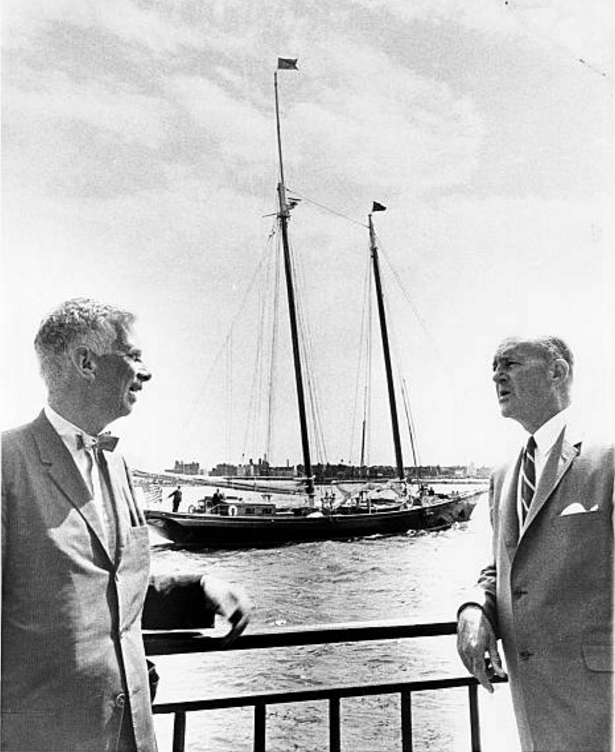
Park Commissioner Heckscher, and Rudolph J. Schaefer with the New America in the background at E. 12st and E. River, where anchor memorial was dedicated, taken August 16, 1967.
Rudy was also involved in creating the United Brewers Industrial Foundation, which was responsible for the “Morale is a Lot of Little Things” advertising series and the later “Beer Belongs” ads. This 1937 photo from the founding of the UBIF includes Rudy Schaefer in the middle, with NYC competitors Jacob Ruppert, Jr. and Carl Badenhausen.
